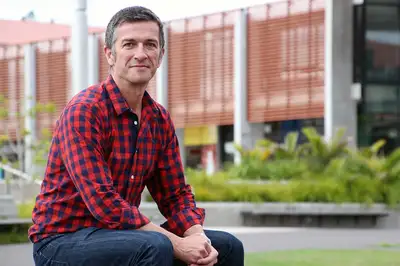
Massey University and stuff's election survey aims to get under the surface of political rhetoric.
Massey University has partnered with Fairfax Media’s stuff website to run a pre-election survey with a difference. It aims to get under the surface of political rhetoric to gauge how people really feel about the challenges facing New Zealand in the run-up to this year’s general election.
Associate Professor Grant Duncan from Massey’s School of People, Environment and Planning created the survey, which went live on the stuff website today. It will be open for seven days and can be accessed here: http://bit.ly/nzelection-survey
While the survey is not a scientific opinion poll, it aims to canvass the opinions of as many eligible voters as possible.
“Rather than reproduce what the existing opinion polls are already telling us, this reader-engagement survey seeks out the opinions and issues that are really bothering people, in order to generate challenging questions for our political leaders,” Dr Duncan says.

Associate Professor Grant Duncan designed the survey questions and will analyse the results. The findings will shape the topics at two political party debates later this year.
Are Kiwis feeling cynical or hopeful?
The survey asks questions like: "Do our politicians truly represent you?", "Are we doing enough to tackle inequality?", and "Do we need more or fewer immigrants?"
It also asks participants what issues are really important to them, so these can be raised at two election debates between the major political parties later in the year. Massey University will co-host these debates with stuff and the Auckland and Wellington Chambers of Commerce in August.
Massey experts will also write a series of commentary pieces for stuff on election issues – including the rise of populism, voter participation, housing, education, immigration and the environment – to promote the survey. Dr Duncan will analyse the results once the survey has closed.
“It will be interesting to see how much the wave of popular political discontent observable in other countries may be beneath the surface in New Zealand, or whether Kiwis have a more hopeful and progressive view of where their country’s heading,” he says.